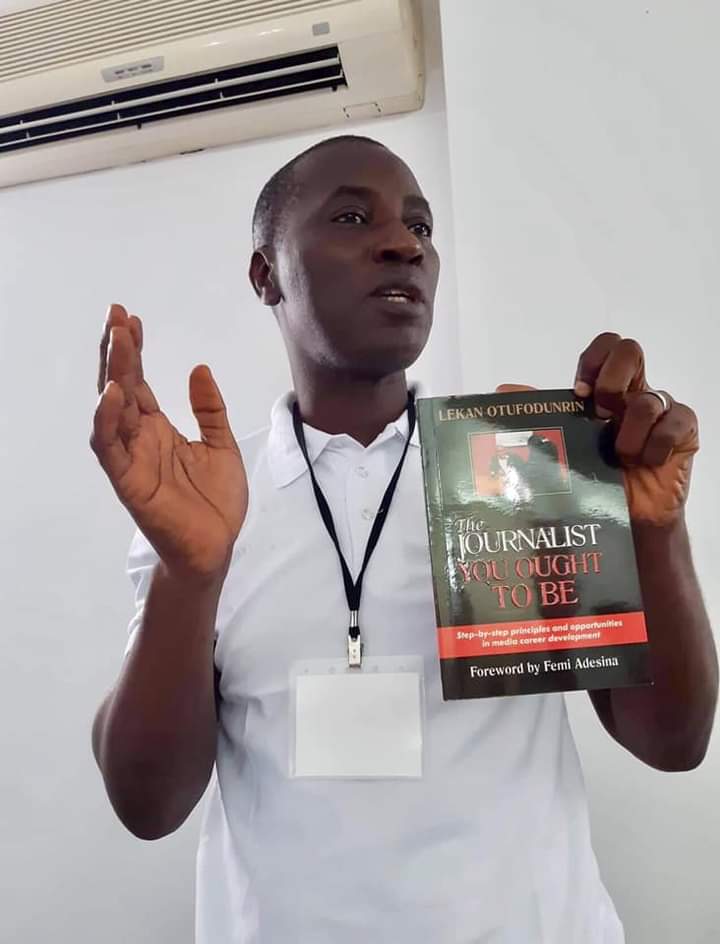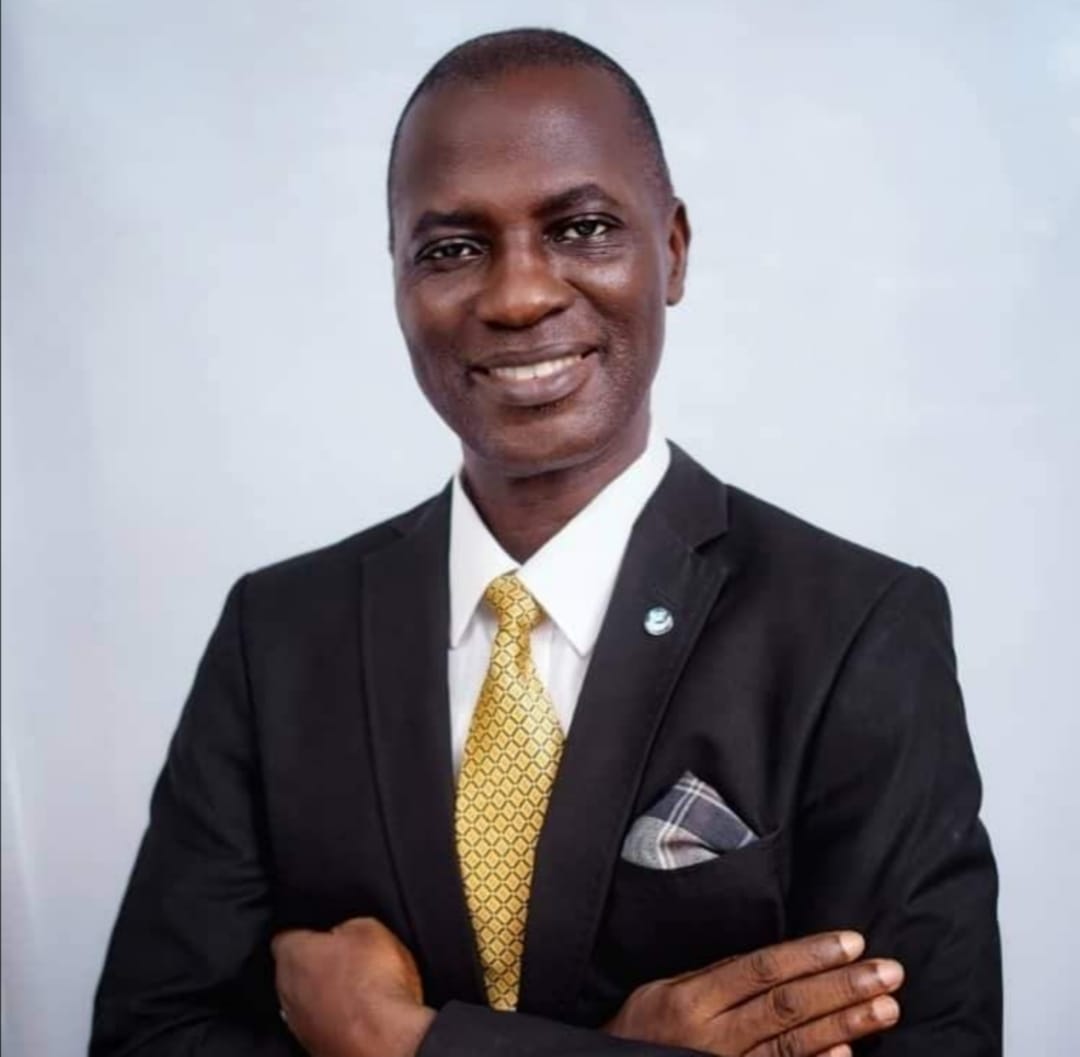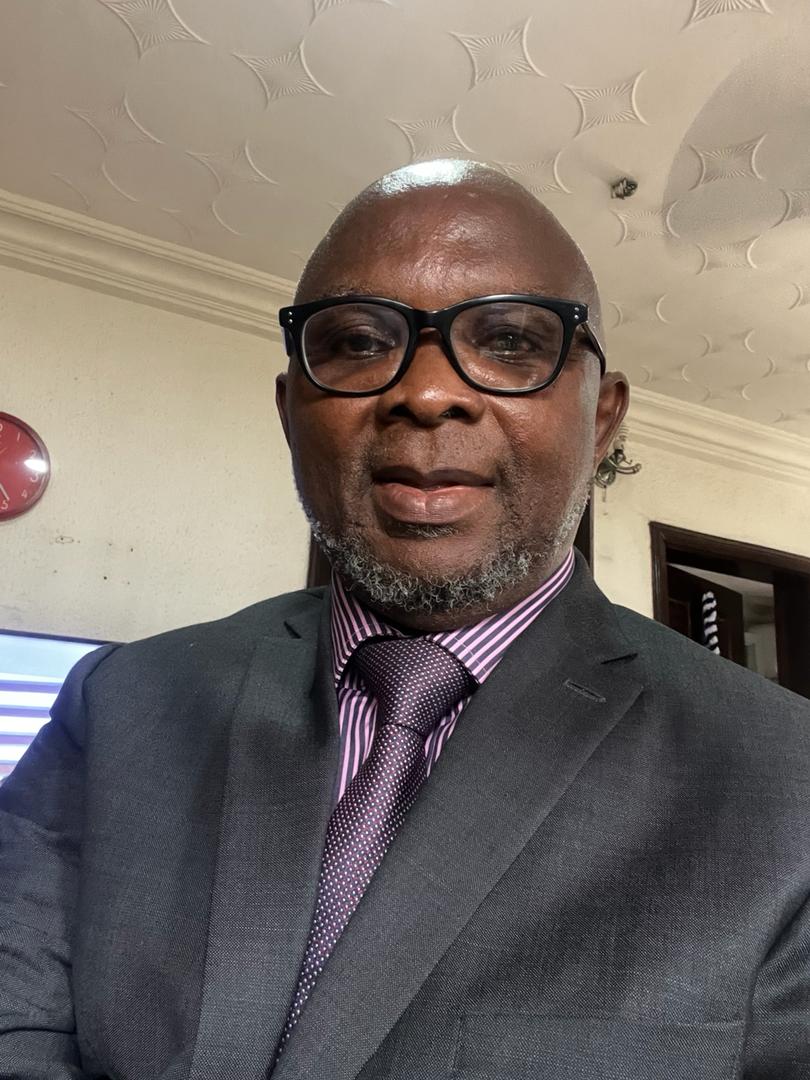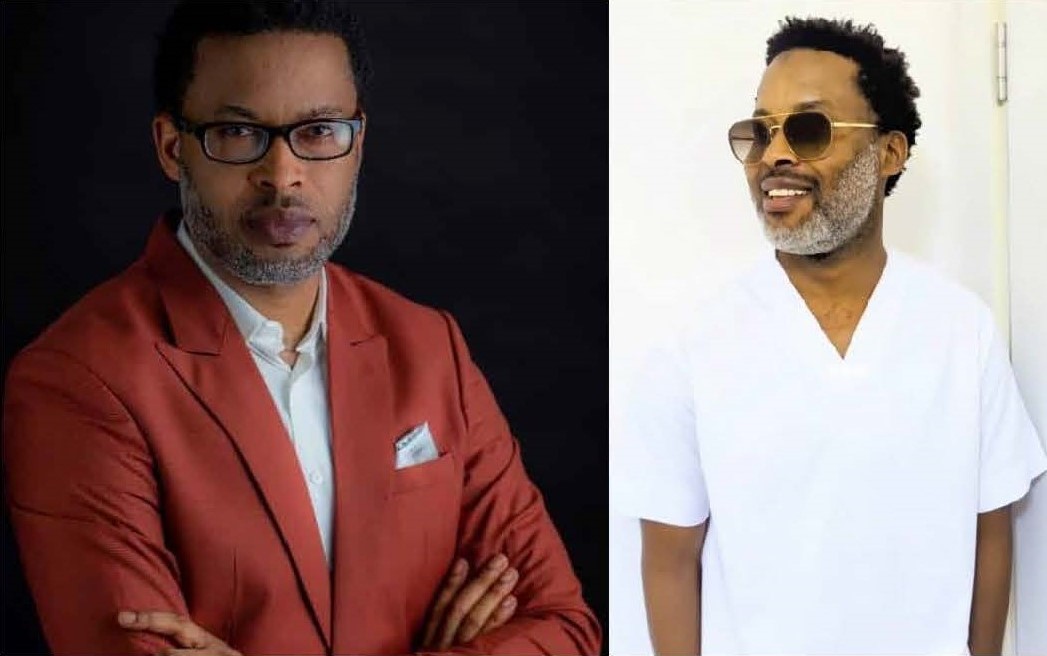Our Veteran Journalist of the Week, Lekan Otufodunrin, a seasoned journalist with an extensive career background earned in over three decades, shares valuable insights from his robust career in the field of journalism, as he relays his experiences which offers profound lessons for aspiring and practicing journalists with Joke Kujenya.
LEKAN OTUFODUNRIN boasts a multifaceted career in the Nigerian media industry, recognized as a media career development specialist, and Executive Director of Media Career Development Network (MCDN), he has hosted impactful training programmes, empowering journalists across Nigeria and Africa, many of whom had progressed from reporting roles to editorial positions, and has authored not a few books in the course of his impactful career life.
Vital lessons from Otufodunrin’s foremost commitment lies in continuous training and development for himself and aspiring journalists, to which he remains unwavering.
Discussing his passion, Otufodunrin accentuates the vital significance of thorough training in journalism, stressing the imperatives of grasping the profession’s complexities and potential consequences.
He also cautions against hastily entering journalism without a proper preparation, noting the risks of the burnout and stunted career advancement.
Drawing from his own experiences, he emphasizes the transformative impact of excessive training which he said, “it not only instills essential skills but also cultivates resilience and versality to prepare them to navigate the various stages of their careers with confidence and adaptability.”
When reflecting on his pivotal moments that shaped his approach to journalism, Otufodunrin listed several key experiences.
Starting as a State Correspondent provided him invaluable exposure which he notes, allowed him to cover a wide range of topics and gain comprehensive understanding of journalism.
Then, transitioning to roles such as News Editor at Punch and later serving as Sunday Editor and Online Editor at The Nation further enriched his expertise.
A significant turning point for Otufodunrin was his three-month training in the United Kingdom, sponsored by the Thompson Foundation, which exposed him to emerging trends in journalism and equipped him with essential skills for the evolving media landscape.
This experience, he notes, opened doors to international networks and opportunities, enabling him to travel extensively and establish connections with influential organizations worldwide.
Otufodunrin recounted a recent story that stood out to him, involving his coverage of the Covid-19 pandemic from a unique perspective.
Tasked with reporting on Covid-19 from a media standpoint, he relayed how he delved into the question of how journalists were personally responding to the pandemic, particularly regarding vaccination.
Recognizing the lack of existing data on journalists’ attitude and behaviours towards Covid-19 vaccines, Otufodunrin said he embarked on a mission to gather firsthand information via conducting inquiries and research across various regions, including Lagos and Ogun states, all in the bid to uncover insights into journalists’ vaccination beliefs and practices.
The resulting report shed light on a crucial yet overlooked aspect of the pandemic response. He revealed diverse perspectives within the journalism community, highlighting instances where even health reporters expressed skepticism towards vaccination.
He notes that this groundbreaking report not only filled a gap in existing Covid-19 coverage but also emphasized the importance of journalists’ self-awareness and accountability in reporting on public health issues. By turning the lens inwards, Otufodunrin provided valuable insights that challenged conventional narratives and sparked important conversations within the media industry.

For aspiring journalists, Otufodunrin emphasizes the importance of passion and ethical commitment, urging them to enter the field for the right reasons and be prepared for a lifelong journey of learning and growth.
He also advises aspiring journalists to acquire necessary training, participate in workshops and conferences, and remain conscious of career development.
He shares a memorable experience from his time as Sunday Editor at The Nation. He recounts a story about a Nigerian individual who died abroad without any trace of the family. He said through diligent reporting and investigation, he and his team were able to locate the family, providing closure and a sense of relief amidst tragedy.
He also highlights the critical role of technology in modern journalism, emphasizing the need to leverage technology while maintaining mastery of traditional skills, and stresses the importance of logical reasoning combined with the ability to edit oneself effectively.
Maintaining objectivity, for Otufodunrin, is to marry that with integrity in journalism amid various pressures and influences which requires a strong commitment to ethical principles and professional standards.
He reiterates the importance of understanding and adhering to the ethical guidelines of the profession, which outline the boundaries of what can and cannot be reported and how it should be reported.
He hinges on the need for him to familiarize himself with the ethics and uphold principles such as objectivity, accuracy and impartiality, and being well-versed in journalistic ethics that enabled him to resist external pressures and remained focused in delivering fair and balanced reporting in his younger days in the noble professions.
“A journalist’s integrity is paramount as it is their name and reputation that are on the line with every story they publish. By upholding ethical standards and remaining committed to objectivity, journalists can navigate the challenges of the profession while maintaining their credibility and trustworthiness,” as the unwavering maxim that kept Otufodunrin standing strong in his career journey.
One particular challenging story I recall involved a woman who approached our news outlet seeking assistance to raise funds for her child’s medical treatment. At the time, I wasn’t certain if our audience would respond to her plea, but we decided to publish her story nonetheless.
To our surprise and delight, a year later, the woman returned to express her gratitude. Thanks to the support generated by our coverage, she was able to afford the medical treatment her child desperately needed. This experience underscored the profound impact journalism can have in helping people during their most vulnerable moments.
Reflecting on such instances, I find immense satisfaction in knowing our work has made a tangible difference in people’s lives. Even in my current role with the Media Career Development Network (MCDN), I continue to witness how our stories and resources empower individuals, providing them with valuable connections and opportunities.
In navigating such challenges, I remain guided by the principles of integrity and responsibility inherent to the journalism profession. I can confidently assert that journalism has ingrained in me a steadfast commitment to consistently uphold ethical standards and prioritize the public interest above all other considerations.
The landscape of journalism has undergone significant transformative over the years, from the era of traditional practices to the current technological age.
With advancements in technology, the way journalism is practiced has evolved, presenting both challenges and opportunities. As someone who has witnessed this evolution firsthand, I can attest to the profound impact journalism continues to have on society.
Journalism serves as a crucial pillar in holding those in power accountable and empowering the public with vital information. It plays a vital role in informing, educating, and enlightening people about events and issues that shape their lives.
In today’s interconnected world, where information flows freely across borders, the role of journalism in fostering accountability and transparency cannot be overstated.
Investigative journalism, in particular, he says, plays a pivotal role in uncovering corruption, exposing wrongdoing, and holding authorities accountable for their actions.
It serves as a watchdog, scrutinizing the actions of those in power and ensuring that they are held to the highest standards of accountability. However, in our environment, investigative journalism faces numerous challenges.
I could recall that one of the primary challenges in our time was, and is still, the lack of cooperation from individuals and institutions that should be held accountable.
We all know that often, those in power are reluctant to provide information or actively obstruct journalists’ efforts to investigate wrongdoing and this can create significant hurdles for investigative journalists seeking to uncover the truth and hold the powerful account.
Additionally, journalists are often harassed, intimidated, and even got physically abused in the course of their work. This hostile environment can deter journalists from pursuing investigative stories or reporting on sensitive issues, further impending the media’s ability to fulfill its watchdog role.
Despite these challenges, I have always believed that it is imperative for journalists to remain steadfast in their commitment to investigative reporting. By persevering in the face of adversity and upholding the principles of journalistic integrity, I knew we continued to uncover the truth and shine our lights on injustice, ultimately contributing to a more transparent and accountable society for which we are modestly celebrated today.
For aspiring journalists navigating today’s media landscape, my advice is rooted in the principles of integrity, responsibility and professional ethics as I had reiterated.
First and foremost, familiarize yourself with the ethical standards of the journalism profession. Understand what is expected of you in terms of objectivity, accuracy and impartiality. The ethical guidelines provide a framework for your work and serve as a compass in navigating complex situations.
In today’s media environment, you will inevitably face pressures and influences that may challenge your integrity. It is crucial to remain steadfast in upholding ethical principles, even in the face of temptation or coercion. Your commitment to objectivity and truth should never waver.
Always strive to present a balanced perspective by seeking out multiple viewpoints and providing thorough coverage of all sides of an issue. Avoid succumbing to bias or favouritism, as this undermines your credibility as a journalist.
Also remember that your reputation and integrity are principal, so you must refuse to be used as a tool for vested interests or agendas, even if it means facing criticism or backlash. Ultimately, it is your name and professional integrity that will endure, long after the pressures of the moment have passed.
By prioritizing integrity, objectivity and ethical conduct in your journalism practice, you not only uphold the standards of the noble profession but also earn the trust and respect of your audience. This trust is invaluable and forms the foundation for a successful and impactful career in journalism.
I think the most pressing issues facing journalism today encompass a range of challenges, with economy at the forefront. Economic constraints significantly impact media organizations, leading to struggles in printing newspapers, maintaining radio stations, and funding investigative journalism.
Many media outlets face financial difficulties, which hinder their ability to conduct thorough reporting and fulfill their journalistic obligations.
Moreover, there is a concern about the quality of journalism due to the influx of inadequately trained individuals entering the field, I call it the rise of ‘flight-by-night journalists’ who lack sufficient training that undermines the credibility and professionalism of journalism.
Additionally is the lack of regulation regarding who can be considered a journalist which contributes to misinformation and misconceptions about the profession.
Technological advancements pose another challenge, requiring journalists to adapt to new models of operation and revenue generation. Digital media platforms have altered the traditional business model of journalism, necessitating retraining and a deeper understanding of digital strategies among media professionals. However, many media organizations struggle to embrace digital transformation fully, remaining entrenched in outdated practices.
To address these issues, Otufodunrin emphasizes the importance of understanding the evolving landscape of journalism and acquiring new skills accordingly. Media professionals need to be retrained to navigate the digital realm effectively and diversify their expertise beyond traditional roles.
Media houses must also undergo a paradigm shift, embracing digital practices and fostering collaboration between different departments to adapt to the era of convergence.
Overall, addressing the economic challenges, enhancing training and regulation, and embracing digital transformation are crucial steps to ensure the resilience and relevance of journalism in today’s rapidly changing media scenery.
Lekan Otufodunrin’s journey as a veteran journalist, without a doubt, reflects the evolution of the field of his trace, from a time without modern communication tools to today’s digital age.
Despite facing challenges and obstacles along the path in journalism, Otufodunrin remained steadfast in his dedication to journalism, recognizing its indispensable role in informing, educating and holding governments liable.





